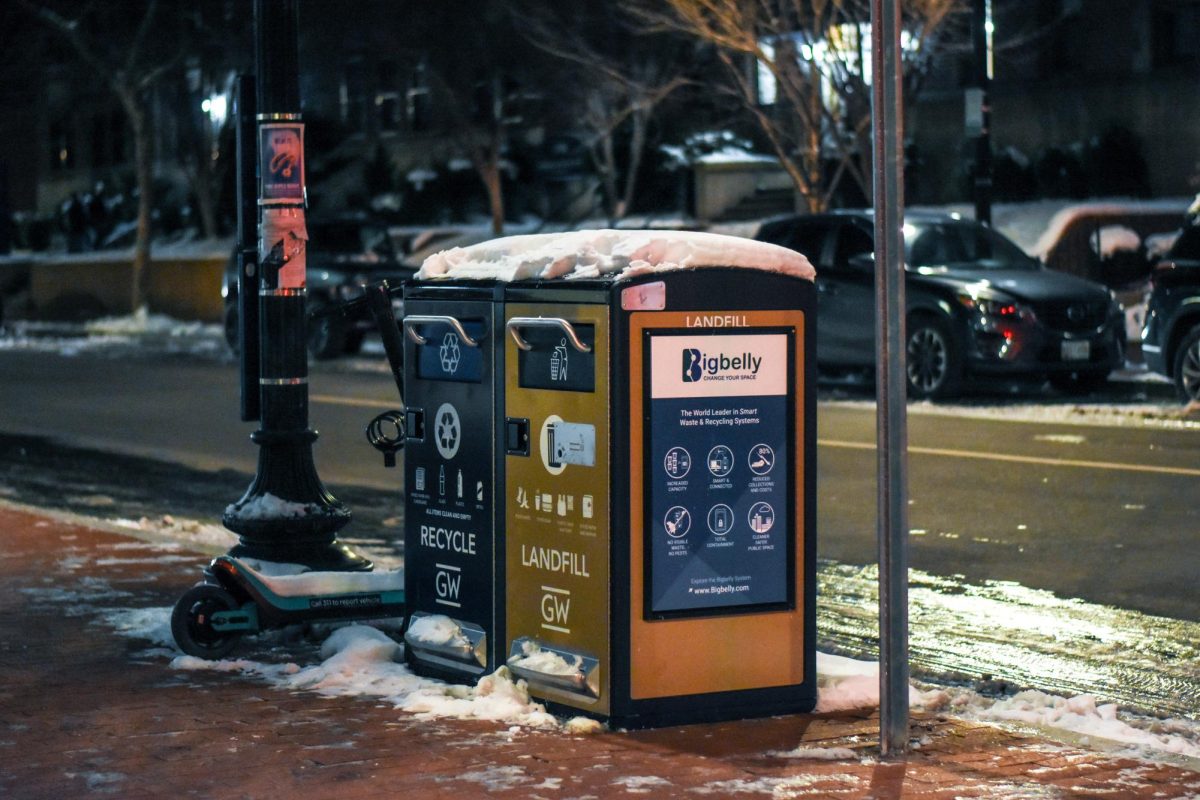GW purchased new trash cans and recycling bins to protect the University’s waste and reduce the presence of pests on campus.
University spokesperson Julia Metjian said GW purchased 90 trash cans and 90 recycling bins in September using funds set aside in the June budget, which officials will install through February. She said the bins, manufactured by Bigbelly, curtail rodents from contaminating recycling receptacles by sealing away food remnants.
The cans populate F Street, near South Hall and the Smith Center, and feature a pull-down door to open. Metjian said officials will replace “nearly all” outdoor trash cans on GW campuses with Bigbellies.
“Fully enclosing trash eliminates a key source of food for rodents,” Metjian said in an email. “Bigbelly has done research to support the conclusion that their products reduce rodent populations, and cities like New York and Philadelphia use Bigbellies.”
Ian Williams, a technical services manager with the pest control company Orkin and a certified entomologist, said rodents and other pests are unable to access food remnants inside Bigbelly’s metal cans, which are fully enclosed and shut automatically.
“This makes the area less appealing for rats, which will choose to move somewhere else in search of food and therefore reduce their ability to reproduce in that area,” Williams said in an email.
Williams said rats — who build their nests and burrows near reliable food sources — may remain in a given area if there are other sources of food nearby. Orkin ranked D.C. as the fourth-rattiest city in 2023, with residents submitting more than 16,000 rodent complaints for the 2023 fiscal year that ended in September.
“Reducing access to trash is a huge part of rat management but is only part of the overall solution,” Williams said.
Ella Mitchell contributed reporting.





